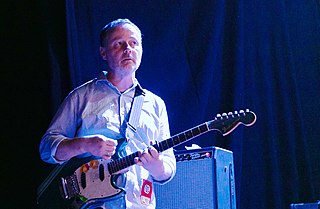A Quote by Jesse Andrews
I don't think you can write from a reactive place. I think you just write the thing you want to write about, and if other people are writing about it, that doesn't really come to bear on what you want to do.
Related Quotes
I don't want to write poems that are just really clear about how I'm aware of all the traps involved in writing poetry; I don't want to write fiction that's about the irresponsibility of writing fiction and I've thrown out a lot of writing that I think was ultimately tainted by that kind of self-awareness.
The most common thing I find is very brilliant, acute, young people who want to become writers but they are not writing. You know, they really badly want to write a book but they are not writing it. The only advice I can give them is to just write it, get to the end of it. And, you know, if it's not good enough, write another one.
I find that I end up liking songs if I really have an idea of something I wat to write about-some problem in my life or something I want to work through; if I don't have something like that at the root of the song, then I think I end up not caring about it as much. I gravitate towards some kind of concept or idea or situation that I want to write about. Very often I have to write, rewrite and come at it from an opposite angle...and I end up writing the opposite song that I thought I was going to write.
The secret to writing is just to write. Write every day. Never stop writing. Write on every surface you see; write on people on the street. When the cops come to arrest you, write on the cops. Write on the police car. Write on the judge. I'm in jail forever now, and the prison cell walls are completely covered with my writing, and I keep writing on the writing I wrote. That's my method.
Someone wanted me to write a profile for ESPN about the commissioner of baseball, and I said, "He's just some suit! Some Republican. No!" I mean if you want me to write about baseball, boxing or football, I'll write about those things because I watch them, I think about them a lot and I like them. But I don't want to write about Barry Bonds.
I don't write about sex because it's not really my subject. I love it when other people write about it, but it's not my subject, and I don't want anyone I've had sex with to write about it. Plus, you're in front of an audience, and they picture wherever you're writing about. I'm 52; no one in the audience wants to picture that.
Any negative review you write, they'll say, "Oh, you're being so mean." I think the problem with a lot of criticism is that too many critics either write just description or they write in a Mandarin jargon that only a handful of people can understand, or they write happy criticis - everything is good that they write about. I think that's really not good. I think it's damaged a lot of our critical voices.
Something I always tell students is, when you're writing something, you want to write the first draft and you want it to come out easily in the beginning. If you're afraid to say what you really have to say, you stammer. [...] You're judging yourself, you know, thinking about your listener. You're not thinking about what you're saying. And that same thing happens when you write.



































